At the end of November Apple was in the news because of the choice to change Crimea map to meet Russian demands.
Handling disputed territories in online services is a wide and challenging topic without a simple solution. Combining a critical area like Crimea with the largest tech company in the world, makes news.
Let’s see first how the largest broadcaster in the world, the BBC, covered the topic. On November 29th, the headline was “Apple changes Crimea map to meet Russian demands” stating that
“Apple has complied with Russian demands to show the annexed Crimean peninsula as part of Russian territory on its apps. (…) The BBC tested several iPhones in Moscow and it appears the change affects devices set up to use the Russian edition of Apple’s App Store”.
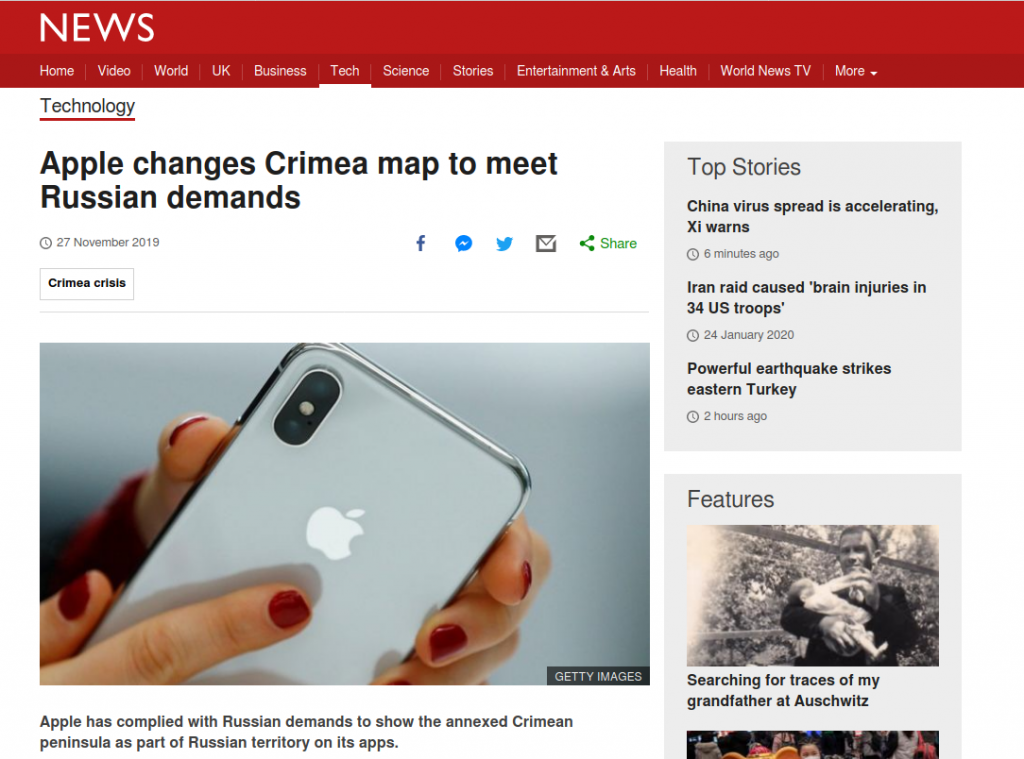
That Google had implemented a similar approach and Apple had not yet commented on the decision was irrelevant. What was coming was obvious and headline the following day: “Ukrainians condemn Apple’s Crimea map change”
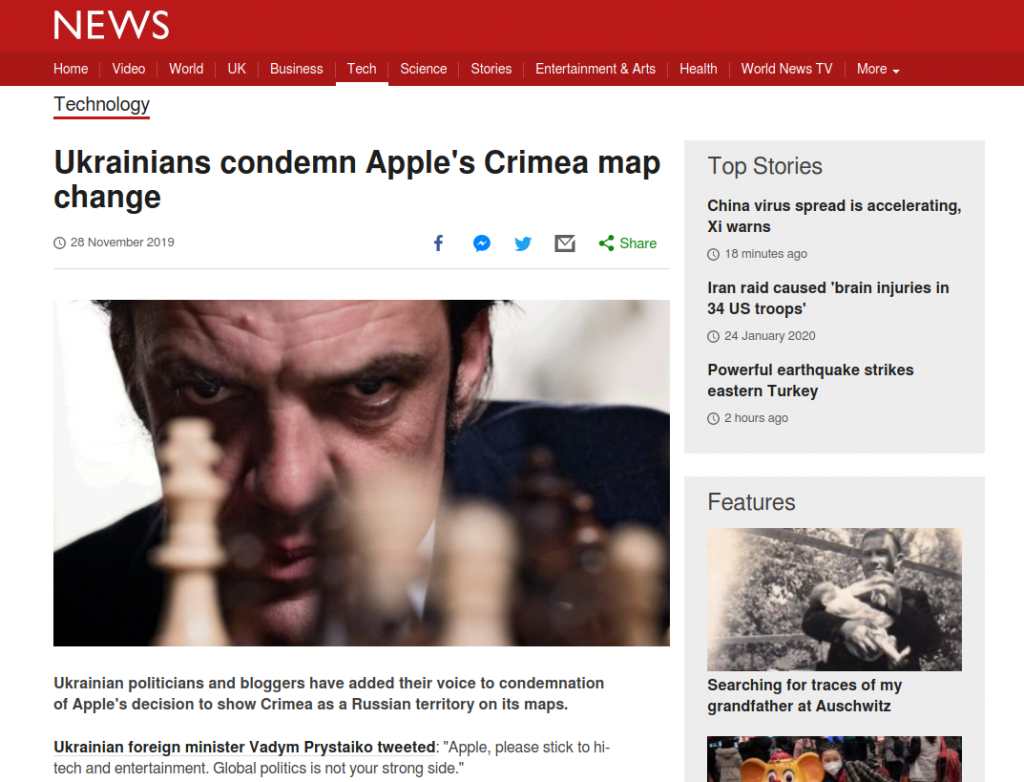
“A huge scandal” or not, a reaction from the Ukrainian foreign minister was obvious and expected. As well the position by most European countries or boycott threats for Apple products.
Apple was still silent, but a comment finally followed the next day and made again headlines: Apple to take ‘deeper look’ at disputed borders
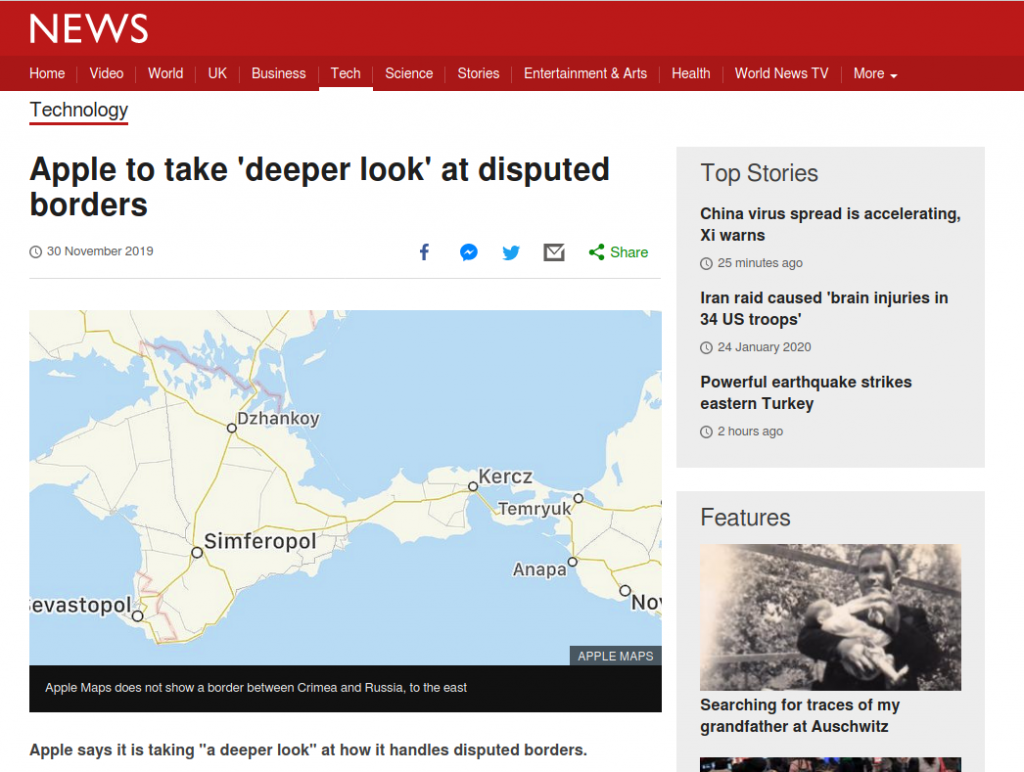
Quoting from the article: “the company follows international and domestic laws and the change, which is only for users in Russia, had been made because of new legislation there”. And: “we review international law as well as relevant US and other domestic laws before making a determination in labelling on our Maps and make changes if required by law.”
Damage limitation? Three headlines in three days is not good for a topic that a tech company would like to sweep under the carpet. As there is no obvious way to make every user happy: once the users notice the differences, there is no way back.
How did they solve the problem? How deep was the “deeper look”?
Let’s test almost two months later Apple Maps with Zenmate, a VPN client that offers IP addresses around the world, Russia included. Typing Crimea from Kiev or Berlin, the first suggestion is for “Crimea, Ukraine”.
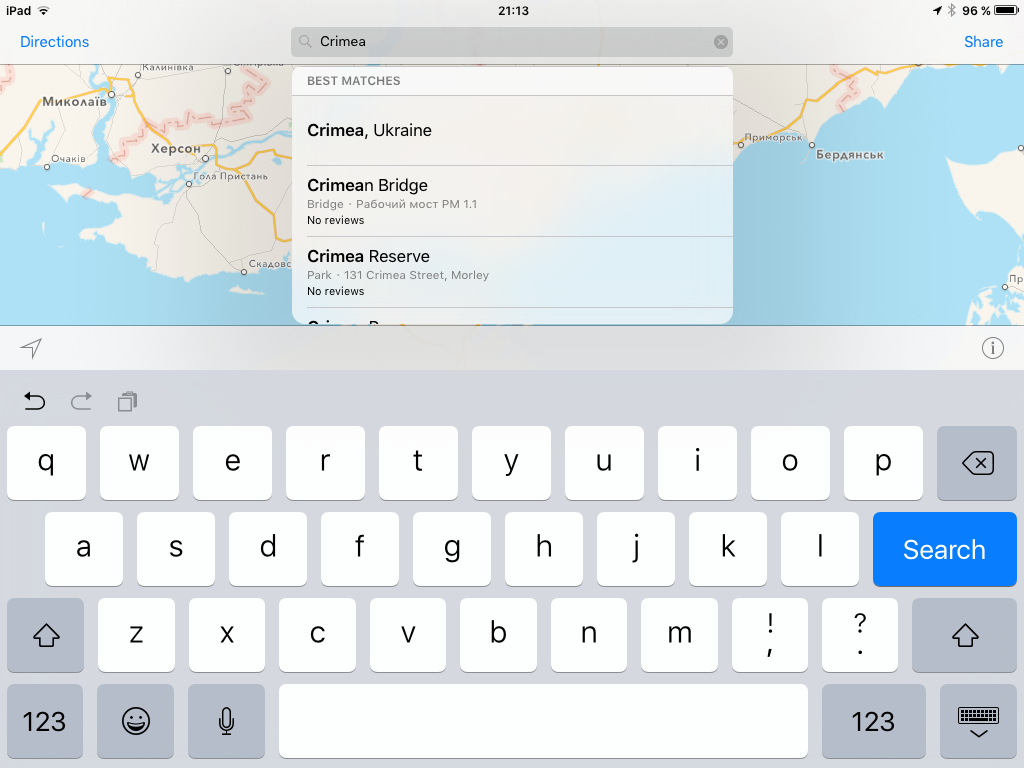
Let’s now search Crimea on Apple Maps from an IP address in Moscow.
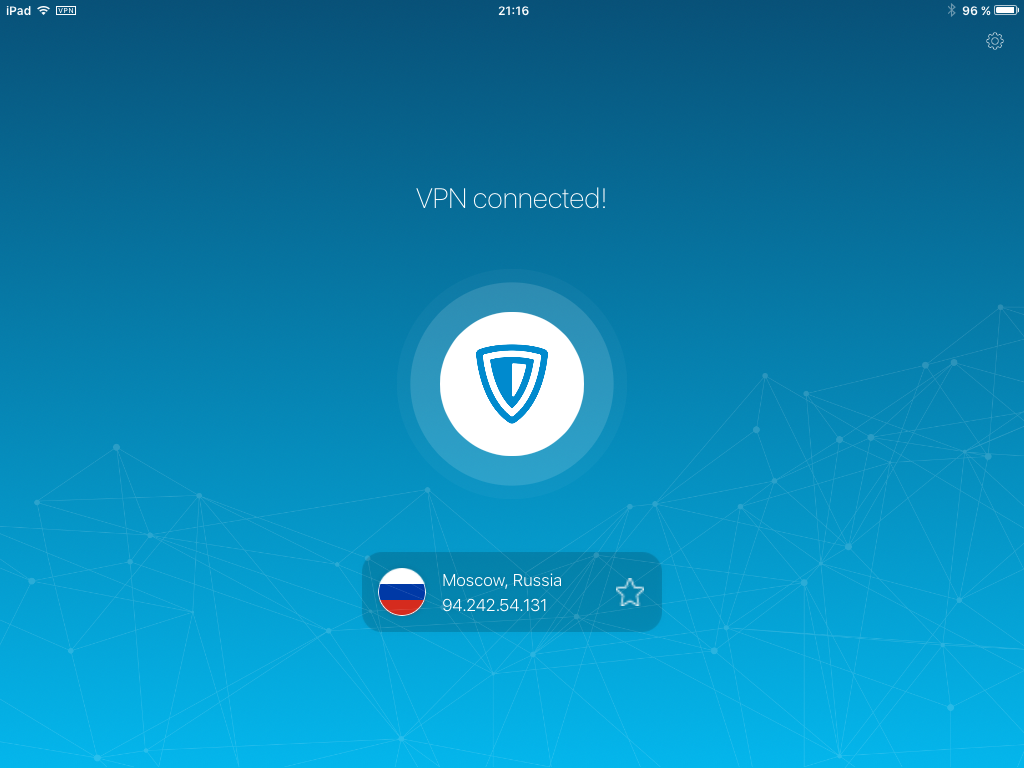
The first suggestion is “Crimea, Russia”. Similar differences apply to other cities and regional borders in the area.
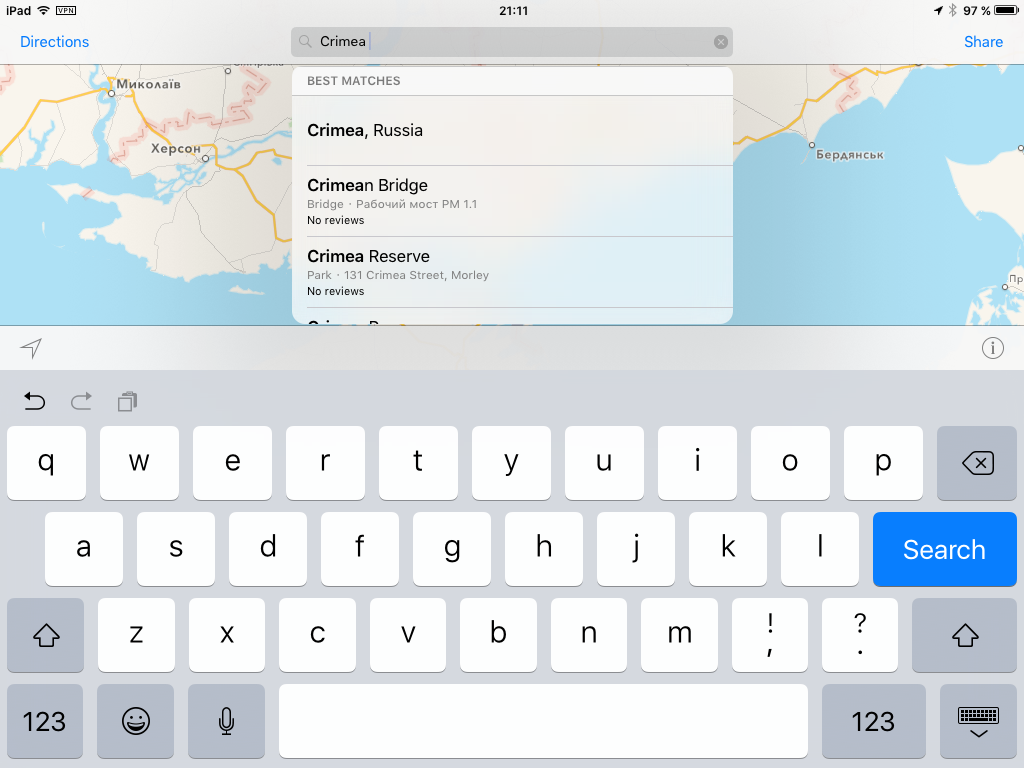
What changed? Nothing.
For Apple, for Google and for other many tech companies, providing different results to different audiences is a lesser evil. And it is the easier way “to make sure (…) customers can enjoy using Maps and other Apple services, everywhere in the world.” For a tech company, the scenario where local authorities force them to comply and change names is not the worst one. They can at least blame the “local legislation”, hoping to avoid too many headlines.
Is this a problem for Crimea only? Not really. To read more about the challenges of geolocation and disputed territories, check saorico.com